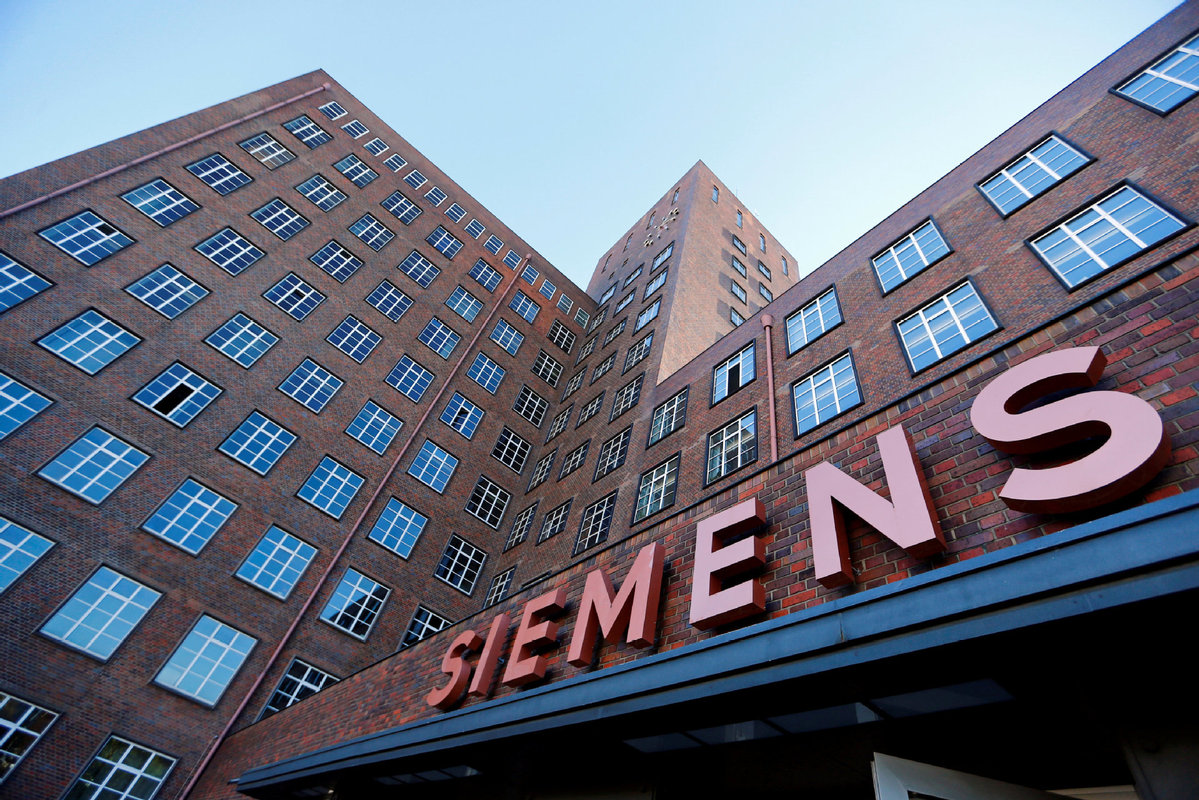Enabling digital transformation


Lothar Herrmann shapes Siemens' efforts to help Chinese firms evolve in high-tech
Lothar Herrmann, president and CEO of Siemens China, first came to Beijing as the company's executive in the 1990s. At that time, he knew the road ahead would be challenging, yet full of possibilities.
In 1995 alone, the German conglomerate established as many as 13 operating companies across China. Herrmann was personally involved in the early phase, which laid a strong foundation for Siemens' subsequent success in China.
"My fascination with China has been growing ever since," he said, adding when it comes to growing the company's investment in China, what he has in mind are China's surging demand for digital solutions, fast-growing urbanization pace and share of the global gross domestic product.
Many opportunities also come from Siemens' Chinese partners who have a need to upgrade their products and boost work efficiency. The larger plan is to strengthen the country's complete industrial chain, as well as other growth drivers such as the Belt and Road Initiative, the coordinated development of the Beijing-Tianjin-Hebei region and the Guangdong-Hong Kong-Macao Greater Bay Area (GBA).
Herrmann said the GBA's vibrant bay economy is taking shape at a brisk speed and on a massive scale. Group wisdom is certainly needed now more than ever. Collaboration, digitalization and talent are the key levers for the future development of the GBA, he said.
Attracted by the GBA's ultimate goal of building a world-class city cluster that is ecologically safe, socially stable, economically robust and culturally attractive by 2035, Siemens plans to provide technological support focusing on five priorities: enabling clean energy; developing digital manufacturing; building smart city cluster; driving innovation; and nurturing talent to support the region's development.

Over 45 percent of fossil power plants across China use Siemens' turbine technologies, Herrmann said. Siemens is now working with China Resources Power Holdings to build digital power plants in China.
The AI-enabled central analysis system keeps learning from history and real-time data to support remote early warning, advanced diagnosis and performance optimization. In the future, CR Power's generators in the GBA could also connect to this system.
Siemens has enabled digital transformation of hundreds of Chinese industrial enterprises from a number of sectors so far. Its digital enterprise solutions have helped auto equipment manufacturer Mino transform from an assembly line builder to an intelligent solutions provider with engineering time shortened by one-third and on-site commissioning efficiency increased by 50 percent.
MindSphere, Siemens' cloud-based open internet of things, or IoT, operating system, is designed to help customers evaluate and leverage data to gain new insights and turn data into value.
The company launched its first Smart City Digital Hub in Hong Kong in 2017. As a collaborative initiative and an open lab, the hub allows researchers to develop solutions in the fields of data analytics and smart infrastructure that benefit Hong Kong and other GBA cities.
Herrmann said Zhuhai of South China's Guangdong province can be a convincing example to build interconnectivity of city infrastructure. The city has adopted Siemens' integrated traffic management system to leverage data from multiple transportation modes.
In addition, the company has provided signaling systems to 37 metro lines in 16 Chinese cities, including a number of projects in the GBA.
For the GBA to grow to be a global innovation and technology hub, an open innovation ecosystem would be ideal. Governments, businesses and academia should work together to massively apply digital technologies that are future-oriented. They should enjoy opportunities to share, collaborate and succeed in the digital age. Continuous reform and opening-up are also needed to remove systemic barriers for better synergies among innovators and cities, he said.
The company has already made available such technologies relating to AI, edge-computing and cybersecurity, he said.
"China is an opportunity for foreign companies. The enormous market potential, the customer base willing to try new things, and the quality of talent ... all make the country an important investment destination."
The Munich- and Berlin-headquartered group has already partnered with over 100 Chinese companies from both State-owned and private sectors to serve more than 100 markets globally with its global network, industrial expertise, accumulated knowledge of the local customs and legal environment to jointly develop economies related to the BRI.
Siemens generated a revenue of 8.1 billion euros ($8.93 billion) in China in 2018. Siemens has 21 research and development hubs, with more than 5,000 researchers and engineering staff, part of its global personnel of over 35,000. It has around 13,000 active patents and patent applications in China as well.
Sun Fuquan, a researcher at the Beijing-based Chinese Academy of Science and Technology for Development, said demand for automation manufacturing in China is among the world's fastest-growing. Many domestic companies are seeking solutions to get products to market faster at lower costs, to improve their asset utilization and cut associated risks.
While large companies are making notable strides in terms of digital transformation, many global technology and solution providers have also begun to allocate financial resources to innovation and marketing channel expansion for small and medium-sized enterprises. They are keen to restore their core strength, as well as forming new cross-industry partnerships with other players, he said.
- Li calls for enhanced trust with Germany
- Chinese cities where Merkel left footprints and forged friendships
- China becoming testing ground for transport digitalization: Siemens Mobility
- Siemens unit plans innovation center for traffic solutions
- Siemens to provide propulsion system for Beijing subway line 19





































